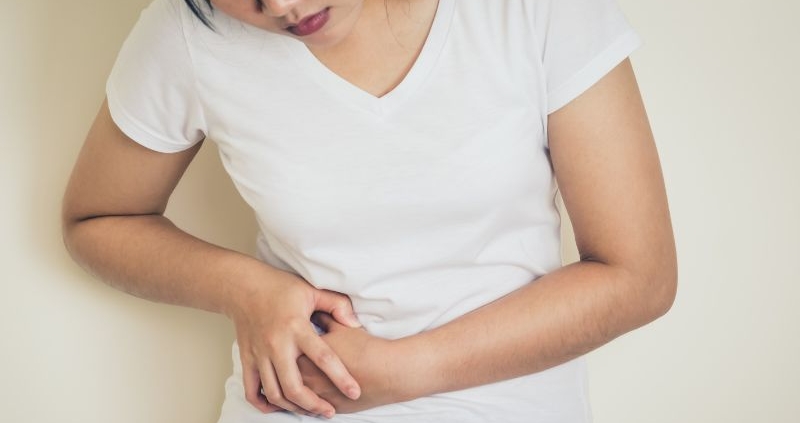How does PCOS affect your fertility?
Polycystic Ovarian Syndrome is a common, although often underdiagnosed, condition affecting women in the UK. It is thought to affect more than one in 10 women, and those suffering from PCOS often have concerns about whether they can successfully have a family.
In September, we focus on PCOS, aiming to raise awareness of this often-distressing metabolic disease, which can cause many symptoms, including difficulties conceiving and complications while pregnant.
PCOS and fertility
Symptoms vary from person to person and in severity, but they can include:
- Menstrual problems
- Difficulty conceiving
- Increased body and facial hair caused by high levels of male hormones
- Weight gain
- Thinning hair
- Acne
It affects your ability to get pregnant in several ways. Your ovaries are typically enlarged, with many follicles containing immature eggs that fail to mature and release an egg, meaning many women have irregular periods or no periods.
PCOS can also cause weight gain and a high BMI, making it more difficult to conceive. However, a diagnosis of Polycystic Ovarian Syndrome does not mean you cannot have a baby.
Whether you’re trying to conceive naturally or contemplating fertility treatment, there are steps you can take to improve your chances of success.
PCOS and nutrition
One of the first steps is to try and achieve hormonal balance by addressing diet. Fertility nutritionist Melanie Brown is particularly interested in endometriosis and PCOS and the effect of nutrition on ameliorating their adverse impact on fertility.
 “First and foremost, PCOS is a challenging condition for women to live with, and it is also very tough to treat,” Mel explains. “Often the advice when you’re first diagnosed is to go on the pill which masks many symptoms. Many PCOS sufferers come off the pill when they want to start a family and find that their periods might not come back, whereas symptoms such as acne or facial hair return with a vengeance.
“First and foremost, PCOS is a challenging condition for women to live with, and it is also very tough to treat,” Mel explains. “Often the advice when you’re first diagnosed is to go on the pill which masks many symptoms. Many PCOS sufferers come off the pill when they want to start a family and find that their periods might not come back, whereas symptoms such as acne or facial hair return with a vengeance.
“Whether you’re trying to conceive naturally or about to undergo IVF, it’s ideal to prepare your body and improve egg quality. It is also good to reduce abdominal fat, which is often an issue for those suffering from polycystic ovaries, without crash dieting, which is not good for your fertility.”
Melanie explains that her approach to treating PCOS patients is similar to all her fertility patients but emphasises controlling blood sugar. Although the cause of PCOS is not entirely understood, it is believed that abnormal levels of the luteinising hormone (LH) and high levels of male hormones interfere with the normal function of the ovaries.
LH is released at a certain point in your menstrual cycle to stimulate the ovarian follicles to mature and release an egg. PCOS sufferers already have high levels of LH, which means they fail to ovulate normally. We also know that glucose-induced insulin spikes further increase the production of testosterone and LH.
“The basis is always a low glycaemic, low carb diet. As well as its impact on our hormones, a dysregulated blood sugar mechanism means that insulin no longer packages up glucose neatly and delivers it to the liver. Instead, it panics and stores it in your fat cells, particularly around your abdomen.
I always check vitamin D levels as many people, particularly those with a higher BMI, are deficient in it without realising it, and it’s important for fertility. As well as a high dose of vitamin D, I recommend supplements that control blood sugar and inflammation and balance hormones such as Inofolic to my PCOS patients.
“Weight gain is a common symptom of PCOS, and many of my patients have been living with this issue for many years. Often, I have to override the messages we’ve been fed by the diet and food industry for decades and explain that peanut butter on rye toast, avocados and full-fat humus are far better for you than Special K, diet coke and low-fat yoghurt.
“Education is always critical. If patients understand what’s happening in their bodies, brains and biome, they can make positive and informed choices.”
PCOS fertility treatments at Aria Fertility
Consultant gynaecologist Miss Amanda Tozer at Aria Fertility is an expert in general gynaecology and women’s health. She has a comprehensive knowledge of menstrual disorders, including endometriosis, PCOS and fibroids. She will investigate symptoms with a physical exam and complete a medical history check.
She can perform ultrasound imaging to check for cysts in the ovaries. You may also need a blood test to check your hormone and insulin levels.
Miss Tozer can offer advice on potential treatments depending on your symptoms and needs, including lifestyle advice, supplements, hormonal control and possible fertility treatments.
Treatment options include induction of ovulation, where fertility medication is used to gently stimulate your ovaries to produce and release a mature egg. You can then either attempt to conceive naturally or through intrauterine insemination (IUI). In general, IVF success rates are excellent for cases of infertility caused by PCOS. Women with POCS may be at higher risk of developing ovarian hyperstimulation syndrome (OHSS), but our experienced fertility doctors are highly skilled in treating PCOS patients and will take every precaution to prevent and manage OHSS.
For more advice on anything fertility and nutrition-related, see Mel’s website: melaniebrownnutrition.com. Call +44 (0) 203 263 6025 or email us at admin@ariafertility.co.uk for advice on preparing for IVF.
For more information on the individual practitioners and organisations offering support, advice, and information to those undergoing fertility treatment, please visit our Support Hub. To discuss your fertility options with one of our specialists, call xxx.

